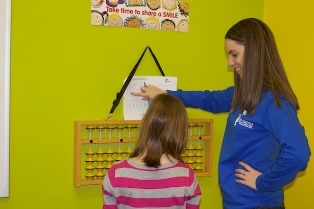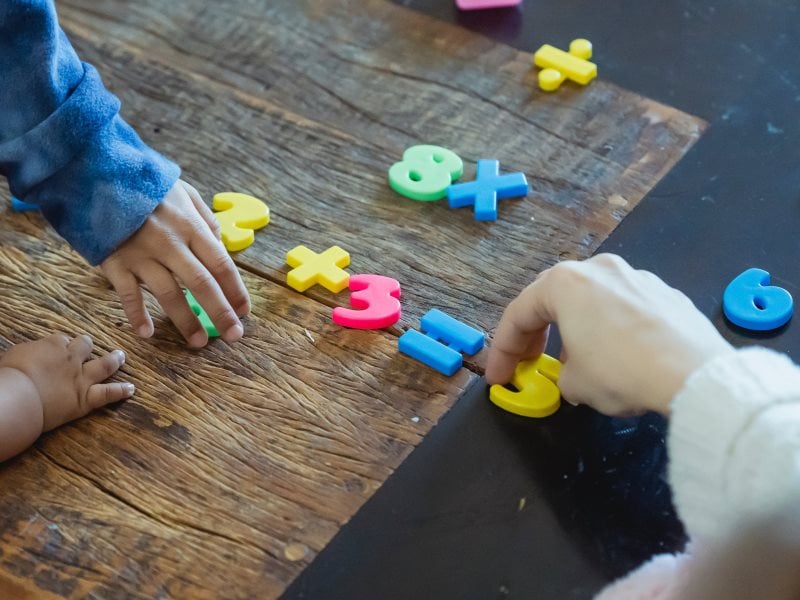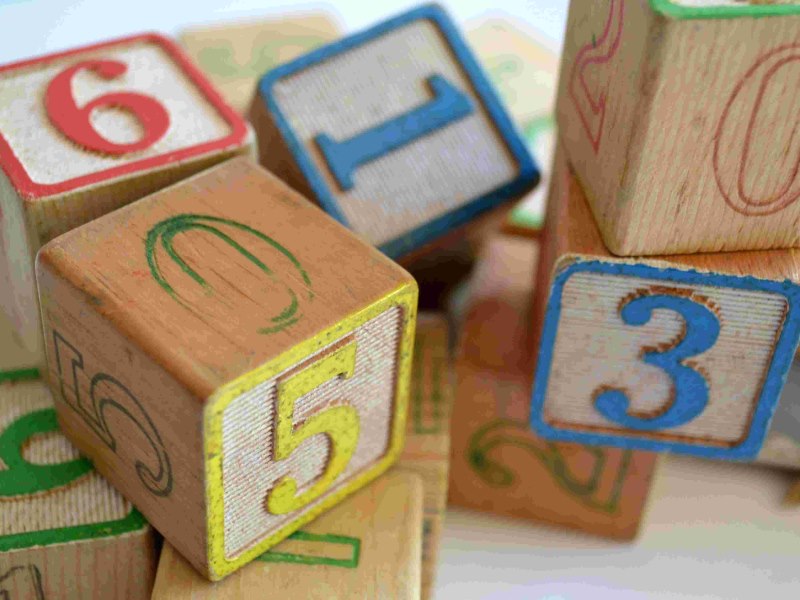 We sat down with some of our Genie Academy math teachers and asked them a simple question: Why should parents teach their children the abacus? The teachers told us many benefits of teaching the abacus to children. Listed below are just a few of those reasons.
We sat down with some of our Genie Academy math teachers and asked them a simple question: Why should parents teach their children the abacus? The teachers told us many benefits of teaching the abacus to children. Listed below are just a few of those reasons.
ABACUS MAKES MATH MAKE SENSE
One of the greatest things about the abacus is that it makes math make sense. What I mean by that is kids who use the abacus understand numbers in a concrete way and are able to see what they are doing in math and why they got the answer they did. It is hard for young kids to understand abstract concepts. According to a study done by University College London, children will not be able to understand abstract words and concepts until around age 9 or 10. That child will still have went through 4 or 5 years of school and struggled with abstract concepts like math and numbers. Without having something physical and concrete, the child will only rely on memorization and will have limited understanding of what they are doing.
However, an abacus student is different. “The big thing with the abacus is that it really helps kids make sense of numbers,” commented Ms. Erin, Genie Academy math teacher for over a year. “Numbers become a concrete idea.”
The abacus student understands why they are getting these answers to their math problems. Once they understand why the answer is this or that, then they will know exactly what happened if they make a mistake. Furthermore, the abacus student will be able to see how each new concept is formed from one they already know and will be excited to learn it.
ABACUS GIVES STUDENTS CONFIDENCE TO DO MATH
“Math at school will only come faster and easier to them,” Ms. Meghan said. We asked her how an abacus student will perform in school, compared to a non-abacus student. Ms. Meghan is an elementary school teacher and has been a Genie Academy math teacher for 5 years. She can see the difference between students who have been taught the abacus and those who haven’t. This difference is staggering. There are some 4th and 5th grade non-abacus students who struggle with multiplication and division and 1st and 2nd grade abacus students who can do these problems in their head.
Ms. Erin also notices the difference in abacus students compared to non-abacus students. She sees that the difference is not just in their ability, but also how they see math problems. “The abacus makes the student more confident,” she says. “They are no longer afraid to solve a problem.”
ABACUS REDUCES STRAIN ON SHORT TERM MEMORY
Ms. Stephanie a long time Genie Academy teacher has studied math and education in college. She noticed that “a lot of kids in school tend to review right away and then once they take their test, they just forget everything. But with the abacus it’s been helping retain all the stuff [they’ve] been learning.”
The abacus helps the student’s memory in two ways. The first way is the student no longer has to memorize answers to arithmetic problems. Once the student learns the abacus, they will know how to solve any arithmetic problem. They will not have to memorize solutions or steps because it is always going to be the same. The second way the abacus helps their memory is that on the abacus they can see very concretely how they got the answer. By understanding how problems and numbers work, they can see how other problems and numbers work. After the student knows how to solve a problem, they no longer need to keep the solutions in their short term memory. It is now retained in their long-term memory and they can pull out those problem-solving skills whenever they need them.
As Ms. Stephanie noticed “in school they learn [problems] and just forget [them] that school year and then they have to remember it again.” However, abacus students do not have this issue because they are able to store what they learn in school in their long-term memory easier than non-abacus students. This frees up their short-term memory and reduces the strains and frustrations that can build up in them.
ABACUS HELPS AS THE STUDENT GETS OLDER
Also, as Ms. Meghan pointed out, “when you are in a younger grade and you learn math, everything is always hands on, using manipulative. But as you get older and the numbers get bigger, there’s no way to use manipulative because the numbers are just so big, but with the abacus you can manipulate bigger numbers.” Being able to see numbers in front of you is always going to be a useful skill. As your child gets older and the numbers they are calculating get bigger, the usual method of counting blocks or pennies will not help anymore because of how big the numbers will be. The abacus also helps students in higher level math. Abacus students have more success with word problems, algebra, fractions, geometry, ratios and so much more. The abacus is the key to mathematics success.
These reasons are only the tip of the iceberg when it comes to the benefits of teaching the abacus. The confidence boost and the eagerness for learning your child will get from the abacus is priceless and will stay with them for the rest of their lives. Within just a few weeks of learning the abacus I have seen toddlers come out of their shell as well as 1st and 2nd graders gaining an understanding for math I did not have until well into high school. The affect lasts throughout your child’s life, No matter what educational and career path they choose, they will have more doors open to them simply by knowing the abacus.





